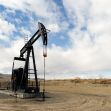Alaska's Arctic National Wildlife Refuge (ANWR) enjoyed federal protections for more than six decades. The region is home to native animals, including polar bears, which are already a vulnerable species thanks to climate change. Caribou, gray wolves, migrating birds, and other creatures also roam on or soar above the pristine natural landscape. But their lease on this virtually untouched swath of wilderness may soon meet its end.
On its way out of the White House, the Trump administration wants to squeak in an auction of the lands to companies that wish to drill for oil. Biden has previously voiced his opposition to drilling in the refuge. The push for this auction mere weeks before President-elect Biden takes office will make it difficult for the next administration to revoke such drilling rights. Many people express concerns about the impact of drilling in ANWR. The Gwich'in population, to whom the land is sacred and who live in several villages bordering the refuge, are among those opposed to the auction. If the administration manages to complete the sales, as seems will likely be the case, the legal fallout and challenges against the decision may persist for years. Eventually, the question might not be whether it is acceptable to drill in the ANWR, but whether doing so is worth the trouble.
Why Do Drilling Proponents Want to Tap Alaska's Reserves Now?
The call to end protections for the reserve is far from new. After all, estimates suggest that the 1.6 million acres contain billions of barrels of oil. If the estimations are accurate, which remains unclear, the drilling could prove profitable.
Officials also point to the oil as a way for the United States to help meet future energy needs. The Trump administration has a history of siding with industry over environmentalists and loosening environmental regulations and protections. These policies, which often come at the expense of environmental efforts, are unlikely to persist after January 20th. The push to hold the auction on January 6th is a clear indication that the Trump administration is looking to offer the drilling rights on its way out the door and before environmental policies begin to shift.
Drilling Might Not Prove as Profitable or Useful as Proponents Argue
While environmentalists, the Gwich'in population, and others are concerned about the potential damage to the region's wildlife and ecosystem, there may be other compelling reasons to avoid the entire project. For one thing, the value of oil plummeted in response to the COVID-19 pandemic. Newer green energy technologies may also compete with the oil industry, especially with the boost such technology is likely to get from the next administration. Improvements in renewables may further cut into the need for large scale oil production.
Even if more conservative views on the actual ability to replace fossil fuels are correct, there is still the question of whether the estimates regarding Alaska's untapped oil are accurate. The last time researchers studied the reserve, they used technology that is now considered out-of-date and unreliable. Some reviews of the region's drilling potential were never completed, leading to more questions regarding whether the ANWR is truly hiding a wealth of oil. It is possible that even with the option to drill, the costs affiliated with conducting such a project might not make the venture worthwhile.
The lawsuits that opponents are already filing to prevent drilling put the leases at risk and could postpone any progress for years to come. The Biden administration might also challenge the leases if the projects present environmental dangers or if they find that the undoubtedly rushed auction process failed to meet relevant legal standards.
Big Oil is Not Jumping at the Chance to Drill in the Refuge
While the government might be pushing to lease off the lands in the reserve, the response from major oil companies has not been enthusiastic. The host of potential issues a leaseholder may face place the value of such drilling rights into question. Many of these companies are concerned about bad optics as well. Investors are increasingly likely to contemplate the environmental and social impacts of their investments. Controversial and heated issues like drilling in a wildlife refuge cause many potential investors to turn away. Large banks, including Bank of America, have already stated their unwillingness to fund projects involving drilling in the Alaskan arctic. While the Trump administration is attempting to prevent banks from being able to make such sweeping anti-drilling policy decisions, such efforts are unlikely to yield results in the little time left before Biden takes office.
None of this means that there will be no interest in drilling in the reserve. Smaller companies might consider purchasing the leases. Some view the lease as a long-term investment, which will prove valuable if politics shift yet again. However, with drilling in ANWR making for controversy even in less politically volatile times, whether such a gamble will pay off remains a big unknown. The demographic shifts in views toward environmental protection indicate that younger generations are increasingly concerned about the impact of human industry on wildlife and the climate. Also, Stanford researchers found that 100 percent renewable energy policies might be achievable by 2050, with green energy covering electric needs even sooner. If accurate, oil leases might not be the best long-term investments. Still, as long as there is money to be made in oil production, the push to drill in places like ANWR will continue to create controversy. Green energy and renewables have a long way to go before they make dependence on fossil fuels go the way of the dinosaurs.






